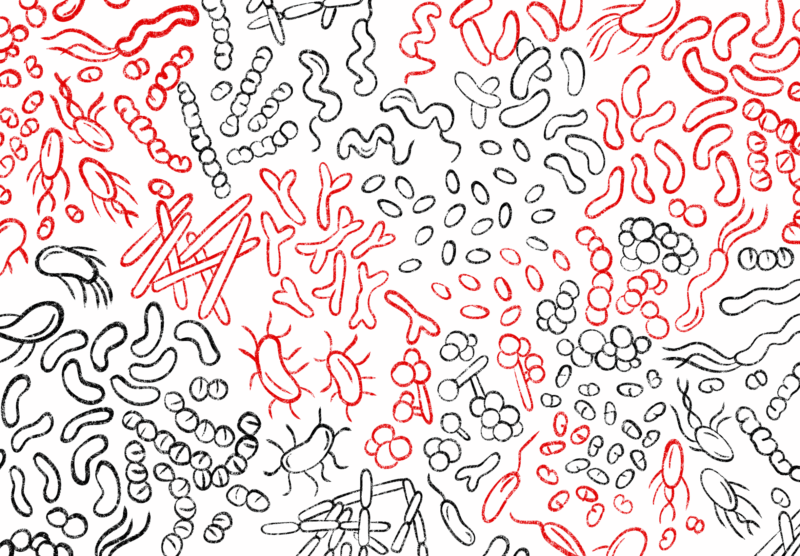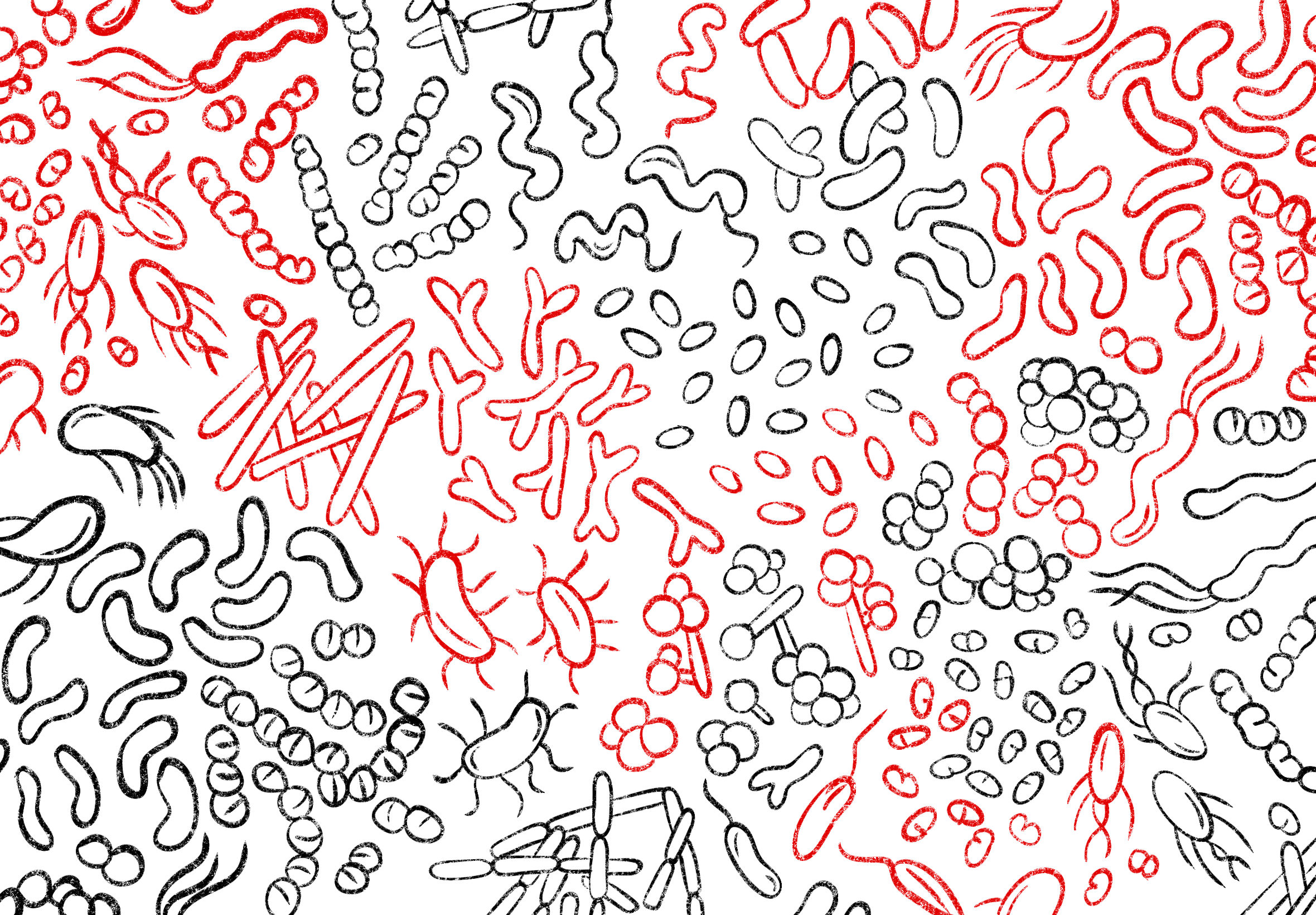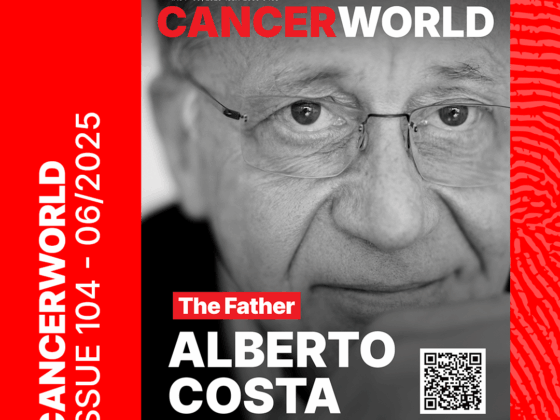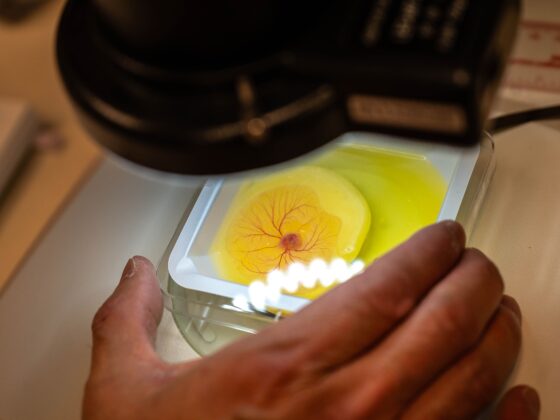The gut microbiota can transform cholesterol-derived bile acids into metabolites capable of blocking androgen receptors and strengthening anti-cancer immunity.
The study, published in Cell, April 15, demonstrates how one of the microbiota-derived secondary bile acids is capable of suppressing tumour progression and boosting the efficacy of anti-PD1 treatment.
“The unexpected crosstalk between microbiota BAs [bile acids], AR [androgen receptors], and CD8+ cells could provide previously unknown insights into how microbiota metabolites are sensed and recognised by host receptors to exert their biological functions. Our results suggest an unrecognised route through which microbiota secondary BAs are sensed by host AR that likely play an important role in modulating host physiology/ disease,” conclude the authors, led by Chun-Jun Guo, from the Jill Roberts Institute for Research in IBD and the Division of Gastroenterology & Hepatology at Weill Cornell Medicine, New York.
Primary bile acids are produced by the liver and released into the small intestine, where they are potent ‘digestive surfactants’, breaking down dietary fats and helping absorption of fat-soluble vitamins (like A, D, E and K). While studies have shown that gut microbiota can transform primary bile acids into secondary bile acids that are associated with host biology/ disease, the molecular mechanisms whereby they interact with human signalling pathways have been largely undefined.
In the current study, Guo and colleagues set out to integrate microbial genetics and metabolomics to explore how secondary bile acids affect host biological function. First, they expressed candidate bile acid-modifying genes in E. coli that were exposed to bile acids in vitro, leading to the identification of a series of 56 new bile acids that had not been previously characterised.
Given that the secondary bile acids share the same steroid backbone as sex hormones ( like testosterone and oestrogen), the team explored whether they interacted with commercially available cell lines expressing a range of different receptors in a cell-based luciferase reporter assay.
“Put simply, a bile acid that was an agonist of the receptor led to luminescence going up and a bile acid that was an antagonist to luminescence going down when tested in the presence of an agonist,” Guo explains to CancerWorld.
To their surprise, the team discovered that one of the secondary bile acids, 3-oxo-∆5-LCA -was a potent human androgen receptor antagonist. The finding led the investigators to test an additional 44 microbiota-derived bile acids that had previously been identified in their cell-based luciferase reporter assay, leading to the discovery of three additional androgen receptor antagonists.
Recently, a study published in Immunity in 2022 showed that blocking androgen receptor signalling led to enhanced CD8+ T cell stemness and a study in Nature, also published in 2022, showed that it enhanced immune checkpoint inhibitor activity. Such findings inspired the team to explore the idea that modified bile acids might also be able to enhance CD8+ cell stem-like properties through their ability to block androgen receptors.
As a proof of principle, in a mouse model of bladder cancer, the team were able to demonstrate that one of the microbiota-derived bile acids, 3-oxo-∆4,6-LCA, suppressed tumour progression and potentiated the efficacy of anti-PD1 in an androgen receptor (-dependent manner. However, in a different mouse model with the androgen receptors ‘knocked out, no such beneficial effects were found.
“Our results suggest that these secondary bile acids help shrink tumours by enhancing T cells’ ability to survive within the tumour and destroy cancer cells,” explains Nicholas Collins, the co-senior author of the study.
The findings, says Guo, suggest a promising new field of investigation, where a wide number of secondary bile acids may interact with a variety of host receptors.
“Our findings likely mark just the beginning of understanding these complex interactions. Individuals differ in their gut microbiome composition and the levels of gut microbial enzymes that modify the bile acids, leading to distinct bile acid profiles. The interactions between microbiota-derived secondary bile acids and host signalling pathways would have a range of different biological functions, including influencing cancer onset, progression, and treatment response,” he says.
Next, the team is looking to test the identified secondary bile acids in different mouse models of cancer (such as colorectal and prostate cancer), to see if blocking the androgen receptors has similar anti-tumour effects.
As the lab specialises in microbiota engineering, they hope to explore the possibility of precisely regulating the production of these secondary bile acids to make cancer therapies more effective.
Another plan is to investigate whether differences in modified bile acids are found between cancer patients and healthy controls. “We hope to establish a panel, including microbiota-derived secondary bile acids along with their producing microbes and enzymes, that could be used as biomarkers to provide useful information about cancer onset, progression, and treatment,” explains Guo.












